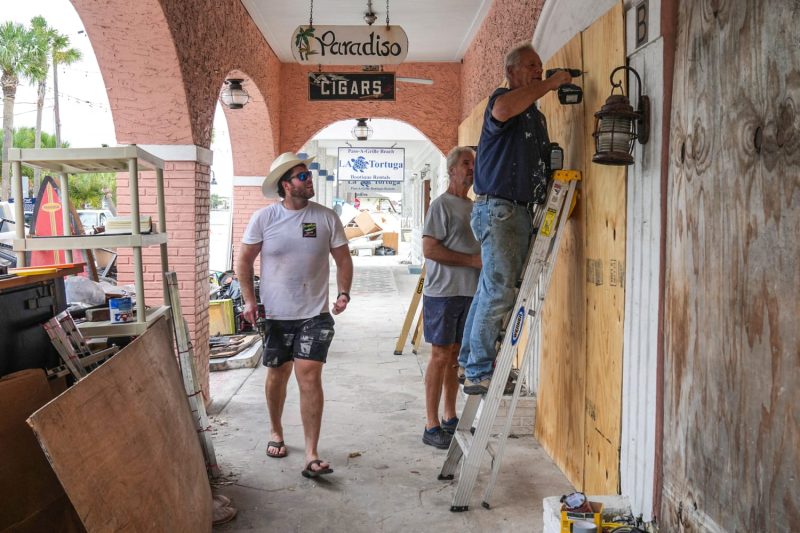The recent intensification of Hurricane Milton has led to contrasting movements in the stock market, with shares of generator maker companies experiencing a surge while insurance stocks faced a decline. This phenomenon underscores the intricate interplay between weather events and financial markets, highlighting the market’s sensitivity to natural disasters.
Generator maker companies, such as Generac Power Systems and Caterpillar Inc., have seen a significant increase in their share prices in response to the imminent threat posed by Hurricane Milton. As individuals and businesses prepare for potential power outages and disruptions caused by the storm, the demand for generators has spiked, leading investors to capitalize on this market trend.
On the other hand, insurance stocks have not fared as well in the wake of Hurricane Milton’s intensification. The looming threat of widespread damage and insurance claims associated with the hurricane has dampened investor confidence in insurance companies, resulting in a decline in their stock prices. The potential financial liabilities arising from the storm have raised concerns among investors, leading to a sell-off of insurance stocks.
The contrasting movements in the stock market reflect the intertwined relationship between climatic events and financial markets. Natural disasters like hurricanes can have far-reaching implications for various industry sectors, influencing investor behavior and market dynamics. While some companies stand to benefit from the increased demand for their products or services during such events, others may face significant challenges and financial losses.
The case of Hurricane Milton serves as a reminder of the unpredictable nature of weather-related events and their impact on the economy and financial markets. As climate change continues to fuel more frequent and severe weather patterns, investors and businesses must remain vigilant and adaptive to navigate the inherent risks and opportunities associated with such events. In this dynamic environment, proactive risk management and strategic planning are essential for safeguarding investments and ensuring business resilience in the face of natural disasters.






























